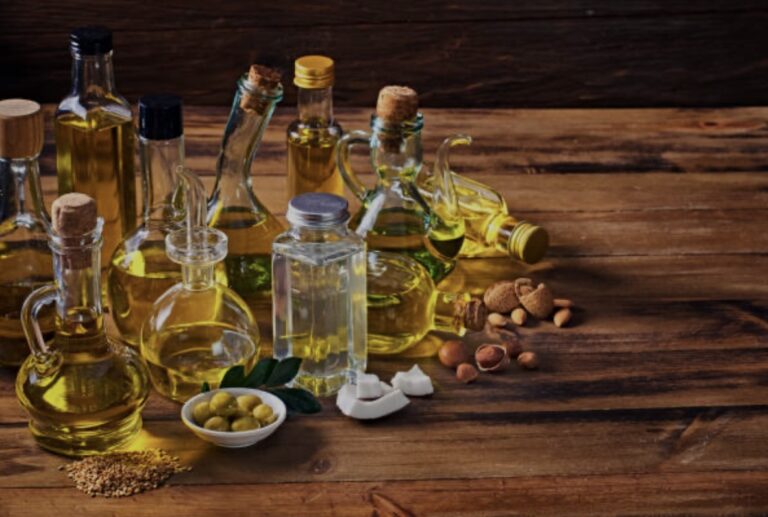Are Seed Oils Bad For You?
That is a good question! Are seed oils bad for you? Seed oils have become an integral part of our everyday diet, found in everything from our favorite salad dressings to the most exquisite bakery products. Made from seeds such as sunflower, corn, soybean, and canola, they are lauded for their versatile use in the culinary world. However, their increasing prevalence in diets worldwide has sparked a heated debate concerning their impact on our health. Are they truly beneficial, or could they be a hidden detriment to our well-being? This article delves deep into the matter, leaving no stone unturned.
Understanding Seed Oils
Before we can dissect the health implications of seed oils, it’s crucial to grasp exactly what these oils are and how they come into being.
What Are Seed Oils?
Seed oils are extracted from the seeds of various plants, including but not limited to sunflower, corn, soybean, and canola. Historically, they have been used in various cultures for millennia, with their modern prevalence in diets attributed to their accessibility, versatility, and purported health benefits.
How Are Seed Oils Made?
The journey from seed to oil involves several steps: extraction, where oils are drawn out of the seeds, and refining, which purifies the oil for consumption. The methods of extraction and the extent of refining can significantly affect the nutritional quality of the oil obtained.
Nutritional Profile
Seed oils are rich in unsaturated fats and contain a blend of omega-6 and omega-3 fatty acids, along with vitamins E and K. Their fatty acid composition, however, can vary greatly between different types of seed oils.

The Health Debate: Pros and Cons
The heart of the debate lies in the effects of seed oils on human health, which has been a subject of extensive research and discussion.
Potential Health Benefits
Heart Health: Unsaturated fats in seed oils can improve heart health by reducing “bad” LDL cholesterol levels.
Essential Fatty Acid Intake: They are a significant source of omega-6 fatty acids, which are essential for the human body.
Antioxidant Properties: Vitamin E, prevalent in seed oils, acts as a powerful antioxidant.
Concerns and Criticisms
Inflammation and Chronic Diseases: High omega-6 fatty acid content has been linked to increased inflammation, raising concerns over heart disease, cancer, and other conditions.
Effects of Processing: Refining seed oils can strip away beneficial nutrients and potentially form harmful compounds.
Omega-6 to Omega-3 Ratio: An imbalance favoring omega-6 fatty acids over omega-3s is thought to contribute to health issues.
Counterarguments and Clarifications
Contextualizing Research: Many studies cited by critics are animal-based or in vitro, making it challenging to draw conclusive implications for human health.
Trans Fats Misconception: Modern seed oils are generally low in trans fats, especially when properly refined.
Fatty Acid Balance: The importance lies more in the balance of fatty acids rather than the elimination of a particular type.

Comparing Seed Oils with Other Fats
Understanding the role of seed oils in a balanced diet necessitates a comparison with other types of dietary fats.
Saturated Fats vs. Unsaturated Fats
Saturated fats—found in animal products and some tropical oils—are solid at room temperature and have been linked to heart disease, whereas unsaturated fats in seed oils are considered heart-healthy.
Olive Oil, Coconut Oil, and Other Alternatives
Olive oil and coconut oil are often lauded for their health benefits and culinary uses. Each oil has its unique nutritional composition and health implications.
The Role of Processing
How oils are processed can significantly impact their nutritional value. Unrefined or “virgin” oils often retain more nutrients and antioxidants.

Practical Guidance on Seed Oil Consumption
Armed with knowledge, consumers can make informed choices about incorporating seed oils into their diets.
How to Read Labels
Understanding labels can help identify the methods used in oil production—cold-pressed, expeller-pressed, and refined—each affecting nutritional quality.
Balancing Fatty Acid Intake
Aiming for a balanced intake of omega-6 and omega-3 fatty acids is crucial for optimal health. This can involve increasing the consumption of omega-3-rich foods, like fatty fish, and moderating the intake of omega-6-rich oils.
Cooking with Seed Oils
The smoke point of an oil—the temperature at which it begins to break down and potentially form harmful compounds—varies across different seed oils, influencing their suitability for various cooking methods.

The Bigger Picture: Environmental and Economic Considerations
The seed oil industry’s impact extends far beyond individual health, encompassing environmental sustainability and economic factors.
Environmental Impact
The sustainability of seed oil production varies widely, with some practices contributing to deforestation and pollution.
Economic Implications
The global market for seed oils has significant implications for farmers and economies, especially in developing countries.
Ethical Concerns
Labor conditions and the role of large agribusiness in the seed oil industry raise ethical questions that consumers should consider.
The question of whether seed oils are bad for you does not have a simple yes or no answer. It depends on various factors, including the type of seed oil, its production method, and how it fits into an individual’s overall diet. Moderation and balance, as in all aspects of nutrition, are key. So are seed oils bad for you? I think there are better choices to use, but everything in moderation in everything is usually the best approach.
Frequently Asked Questions
There’s no one-size-fits-all answer, but oils high in unsaturated fats with a suitable smoke point for cooking methods can be considered healthier options.
While no seed oil needs to be entirely avoided, it’s crucial to seek out oils processed in a way that maximizes nutrient retention and minimizes harm.
Incorporate a variety of fat sources, including fatty fish, nuts, and seeds, and moderate the intake of omega-6-rich oils.
Yes. Cooking at high temperatures or reusing oils can degrade the oil, potentially forming harmful compounds.
Opt for oils that are sustainably produced, and consider the environmental impact of the production processes.


